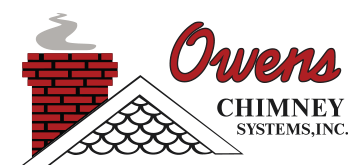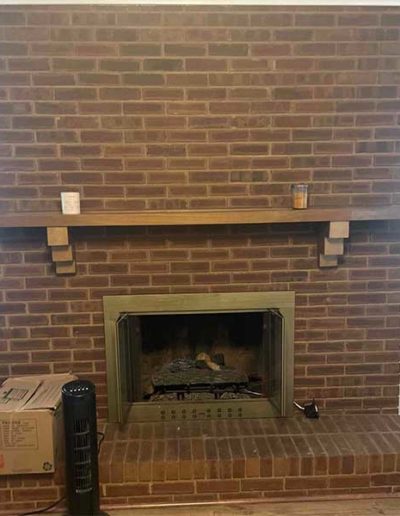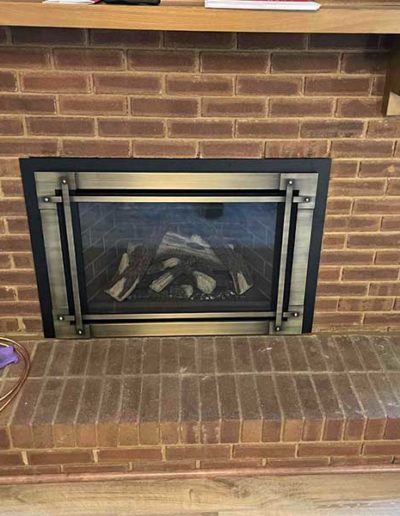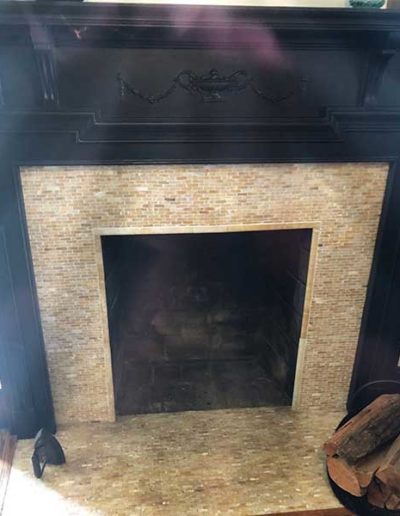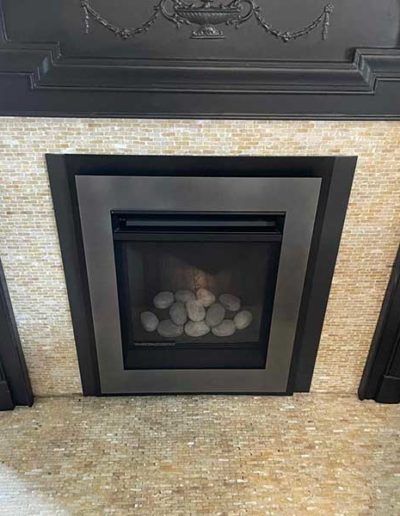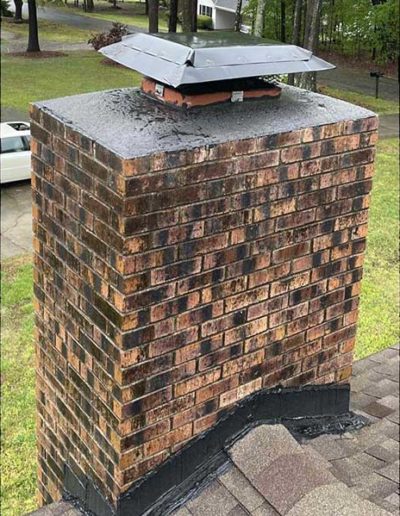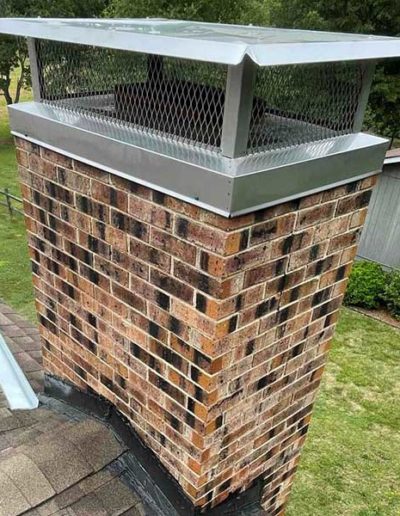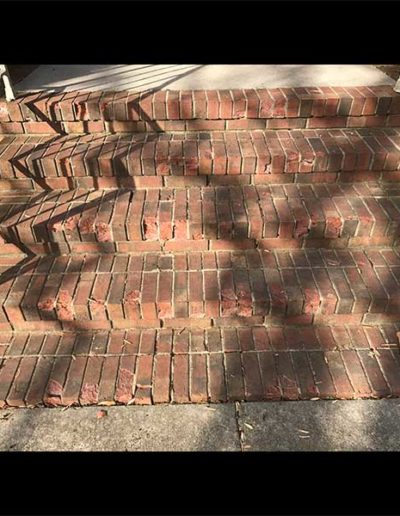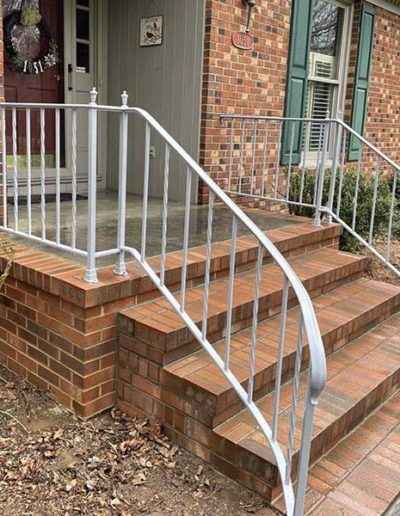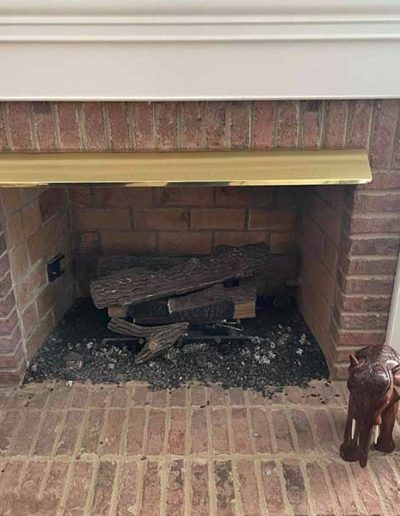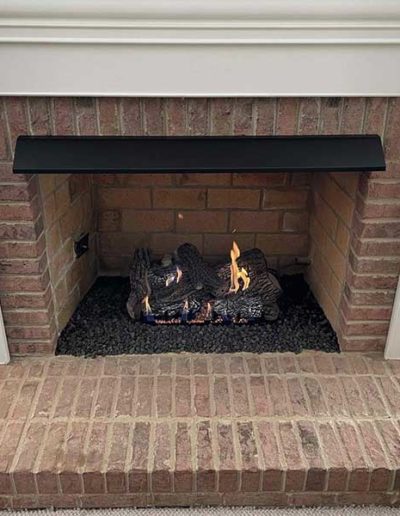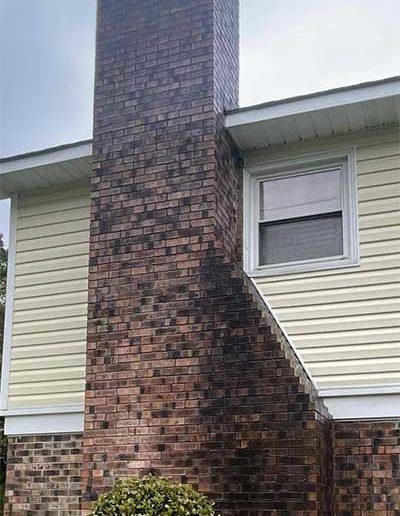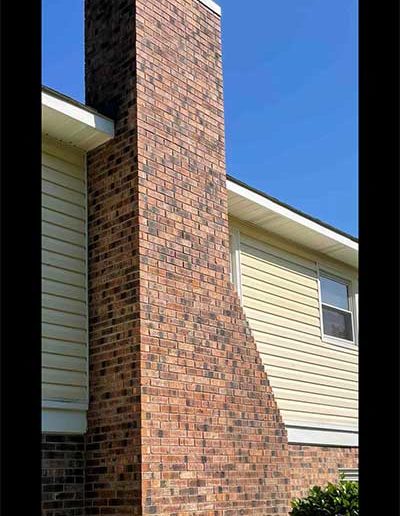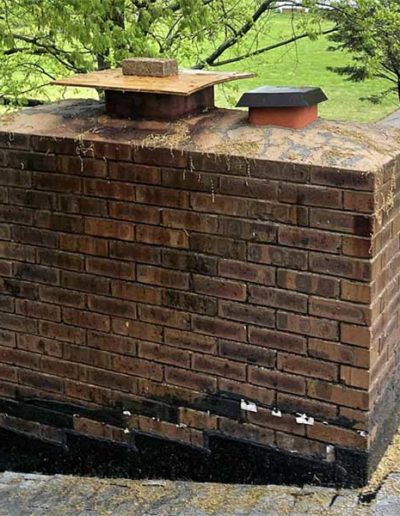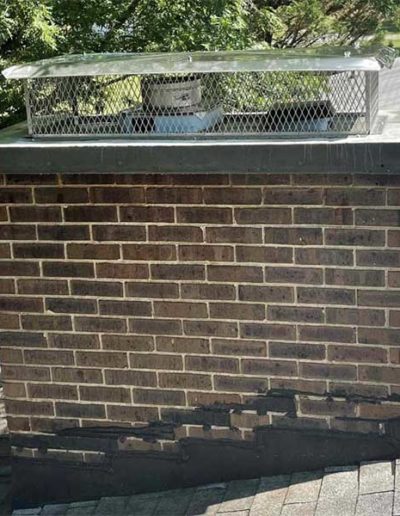Charlotte, NC Chimney & Fireplace Repair: From the Firebox to the Chimney Cap
We’re guessing you’re not on this page to simply improve your chimney knowledge for next week’s trivia night. In fact, we’d dare to bet “chimney repair charlotte nc” or “fireplace repair near me” (or something quite similar) have been frequenting your Internet searches lately.
Dealing with a damaged chimney or fireplace is never fun. The good news for homeowners in the Charlotte, NC area is that quality chimney and fireplace repair is only a phone call (or click) away. Dial our number or reach out online now – Owens Chimney Systems has got your back.
Chimney Repair Services: Understanding Your Chimney
A chimney is an important part of any home with a fireplace or wood stove. It allows smoke and gases to escape, while also ensuring your fireplace can provide an efficient source of heat. However, chimneys are also vulnerable to leaks and other issues – which can cause water damage to your home, make you more prone to gas leaks, and even pose a fire hazard.
When it comes to your chimney, what you see might not always be what you get.
What do we mean by this? Well, when you look up at your chimney stack, you might think it looks great…but until you get up close and personal with the brick, you cannot see the beginnings of deterioration throughout the mortar joints and surface of the brick. Unless you get on the roof yourself and look, you will need to get a technician out to conduct an inspection to see this.
When you know this is happening you can make better decisions as to how and when it is best to fix it. The reason the bricks wear on the stack is often due to rain, wind, and extreme heat and cold. All of the materials that make up mortar and brick expand and contract – and thus wear.
There are some great ways to help prevent this wear while still maintaining the proper ventilation of the brick. You might want to call us or read more about waterproofing to see if this is a good fit for your system.
Chimney Repairs – Before and After
What Fireplace Repair Services Does Owens Offer?
Repairs to your chimney can be made from the firebox floor to the top of the chimney stack. In fact, the most common are made at the two extreme ends of the appliance. The firebox is exposed to extreme heat and, over time, can wear down. Though the fire bricks are made to bear this heat, they can start to flake and need to be repaired or replaced.
However, it’s the mortar that normally breaks down first and this can be replaced by repointing.
Repointing is a masonry skilled craft. It is the process that involves the removal of existing deteriorated mortar from the joints of a brick wall and replacing it with new mortar for added strength and durability. This process can be used on the inside of the fireplace as well as the outside of the chimney stack.
We also offer repair and installation services for flashing, caps, crowns, & dampers.
What Can Cause Chimney Damages?
Typically, most chimney damage falls into one of the following categories…
- Cracks & Gaps in the Chimney Flue: One of the most common types of chimney damage is cracks and gaps in the chimney flue. These can occur due to a variety of reasons, including thermal stress, corrosion, and impact damage. A damaged flue can cause hazardous gases to leak into your home, posing a severe health risk to your family.
- Chimney Crown Damage: The chimney crown is the topmost part of the chimney, which protects it from external elements, such as rain and debris. Damage to the chimney crown can cause water to seep into the chimney structure, leading to water damage, corrosion, and mold growth.
- Flue Blockages: Flue blockages occur due to a buildup of soot, creosote, debris, or bird nests in the chimney. These blockages can restrict airflow and cause hazardous gases to accumulate in your home, posing a significant risk to your family’s health.
- Chimney Leaks: Chimney leaks can occur due to a damaged chimney cap, crown, or flashing. Water leakage can cause significant damage to your chimney structure and lead to mold growth, water damage, and corrosion.
The good news is that all of these types of damage can be repaired – and then prevented – by our certified and knowledgeable chimney technicians. Give us a call or book online today to get started.
Will Homeowners Insurance Cover Chimney Repairs?
If your home has a fireplace or wood-burning stove, then your chimney is essential in ensuring the effectiveness of that system – and the safety of your home and family. Your chimney helps to channel smoke and harmful gases out of your home, keeping the air cleaner and safer.
However, like any other part of your home, your chimney can suffer wear and tear over time – which can then lead to the need for costly repairs. All of this tends to leave homeowners wondering if insurance would cover the cost of these expenses.
The answer depends on several factors, including the cause of the damage, the type of insurance policy you have, and the extent of the damage.
- Cause of the Damage: The cause of the damage to your chimney can have a significant impact on whether or not your insurance will cover the repairs. If the damage was caused by a covered event, such as a fire, lightning, or a windstorm, your insurance policy is likely to cover the cost of repairs. However, if the damage was caused by neglect or lack of maintenance, your insurance policy is less likely to shell out the dough.
- Type of Insurance Police: The type of insurance policy you have can also affect whether or not your chimney repairs are covered. If you have a standard homeowners insurance policy, your chimney may be covered if the damage was caused by a covered event such as a severe weather storm. However, if you have a basic policy that only covers specific types of events or losses, your chimney repairs may not be covered.
- Extent of the Damage: The extent of the damage to your chimney will also make an impact in insurance coverage cases. If the damage is minor, your insurance company may not cover the repairs or may only cover a portion of the cost. However, if the damage is significant and poses a threat to the structural integrity of your home, your insurance company is more likely to cover the cost of repairs.
The Importance of Chimney & Fireplace Maintenance
Investing in regular chimney inspections is key to avoiding big damages – and expensive fireplace repair jobs. When your chimney is not properly maintained it can lead to a number of issues, including:
- Creosote Buildup: This harmful byproduct of burning wood builds up in a chimney flue over time and, when not removed, can start a chimney fire. These events cause a lot of damage, and they can invite all kinds of hazards into your home, too, so avoiding them at all costs is a must.
- Blockages: Blockages in your chimney are a big problem. They prevent proper ventilation, trigger odors, can create fire hazards, and might even cause dangerous gases (like smoke or carbon monoxide) to build up inside your home.
- Structural Damage: If a chimney’s structure is damaged or compromised, it will only continue to deteriorate over time – which then affects the system’s safety and efficiency as a whole and puts your household at risk.
Long story short – regular maintenance is the best way to help prevent these issues and ensure that your chimney and fireplace function right for the long haul. Book your next fireplace inspection online with our experts today.
Can Chimney Repairs Be Done in Winter?
As the weather gets colder, many homeowners in the Charlotte area start to think about winterizing their homes, including preparing their chimneys for the winter season. Chimneys are an essential part of your home’s heating system, and they require regular maintenance and repairs to function correctly. We get a lot of questions from homeowners wondering if chimney repairs can be done in the winter!
For the most part, the answer is yes, but there are a few things to keep in mind to ensure that the repair process goes smoothly and safely. When it comes to investing in chimney repairs during the colder months, a few things can determine which repairs can be done and which ones can’t.
The extent of the damage and work needed is a big factor. If the repairs are minor and won’t require taking apart brickwork, or the structure of your chimney, they can typically be done in the winter. If you are in need of a complete tear down, or rebuild, then those types of repairs are best carried out when the temperatures are consistently warmer.
Colder temperatures and winter weather conditions can also make completing chimney repairs risky and more dangerous because our chimney technicians have to work against slick or sometimes snowy roofs and possible unexpected weather changes. When it comes to winter chimney repairs the professionals at Owen’s keep the following in mind:
- Safety first: Winter conditions can be hazardous, so we’ll make sure to take all necessary precautions to stay as safe as possible during the repair process. We make sure our certified chimney sweeps are protected from the elements so they can stay warmer and we also make sure they have the right equipment like sturdy ladders and harnesses.
- Time of day: We will try to schedule your repairs during the warmest part of the day to minimize exposure to cold temperatures. Additionally, winter repairs can take longer since the sun sets earlier.
- Material considerations: Some chimney repair materials, such as mortar, may not cure correctly when temperatures drop a bit lower. Our CSIA-certified chimney technicians will use the right materials and tools so the job is done right the first time – despite the weather.
Questions? Give Us a Call
If you suspect that your chimney has damage, don’t hesitate to call Owens Chimney Systems. Our CSIA-certified professionals can help assess the damage and provide the necessary advice to keep your chimney in top condition.
Remember – taking care of your chimney today can save you from significant costs and headaches in the future. Call or schedule online now.
Our chimney restoration team knows exactly how to install or repair flashing on your chimney to help preent leaks.
